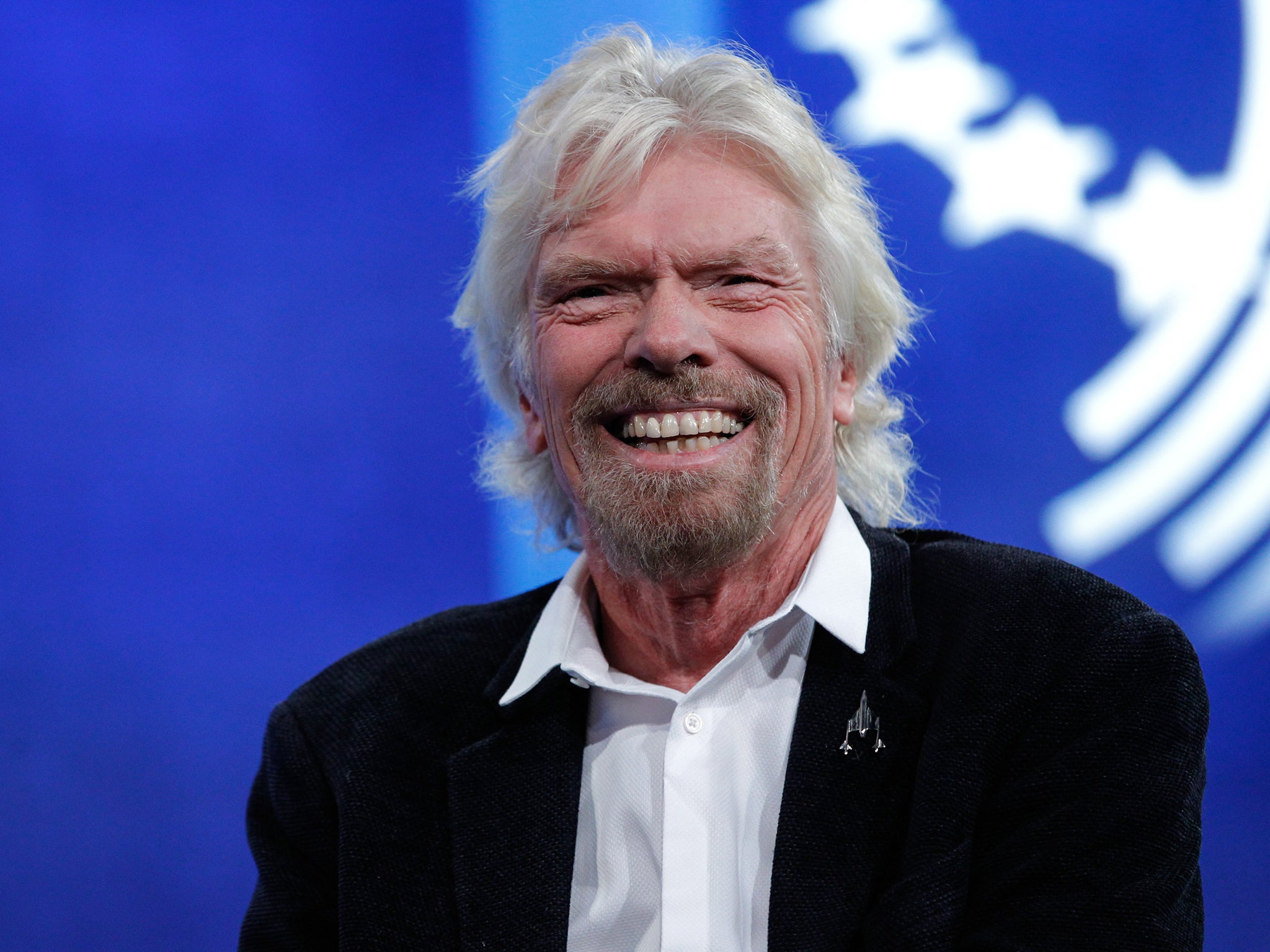Richard Branson enjoys £12m payday from Virgin Money
Sir Richard’s major gain has been the rise in the share price from 283p in the November 2014 float to 364p, up 7 per cent. That has given him a paper profit of £126m to date.

Sir Richard Branson has enjoyed a £12m payday after Virgin Money declared its first full-year dividend since floating on the stock market 16 months ago.
The 4.5p-per-share payout for the year means Sir Richard will get a cheque for £7m for his 35 per cent stake in the bank. And he also picks up £5.2m as the royalty on using his Virgin name, charged at 1 per cent of the bank’s total income of £523m.
“Ask my marketing people and they will tell you it is well worth that,” Jayne-Anne Gadhia, its chief executive, said as she reported a 53 per cent jump in profits last year to £160m. But Sir Richard’s major gain has been the rise in the share price from 283p in the November 2014 float to 364p, up 7 per cent. That has given him a paper profit of £126m to date.
Ms Gadhia said the surge in profits was relatively simple to explain: “We had success across all our product lines, from mortgages to credit cards, and very strong cost controls. We are a new bank without any legacy issues and new IT that works well.”
Last year Virgin’s cards business grew by 44 per cent against a market which rose 4 per cent, putting it on track to hit its target of £3bn-worth of credit card balances in 2017.
Mortgages rose 16 per cent against a market of 2 per cent and deposits 12 per cent against the market’s 7 per cent.
Ms Gadhia said Virgin, like all the challenger banks, faces the imposition of George Osborne’s 8 per cent bank surcharge from this year on.
“It means we will be paying 28 per cent tax rather than 20 per cent this year and we don’t expect the Chancellor to step back from that,” she said. “But there are ways, particularly with the Competition & Markets Authority, in which the playing field could be more level for all banks.”
She also warned Britain’s vote on whether to stay in the European Union could cause a “lengthy period of evaluated uncertainty”. In the event of a Brexit vote, “I would expect that prices would probably increase and we would follow the market in pricing accordingly,” Ms Gadhia added.
Join our commenting forum
Join thought-provoking conversations, follow other Independent readers and see their replies
Comments